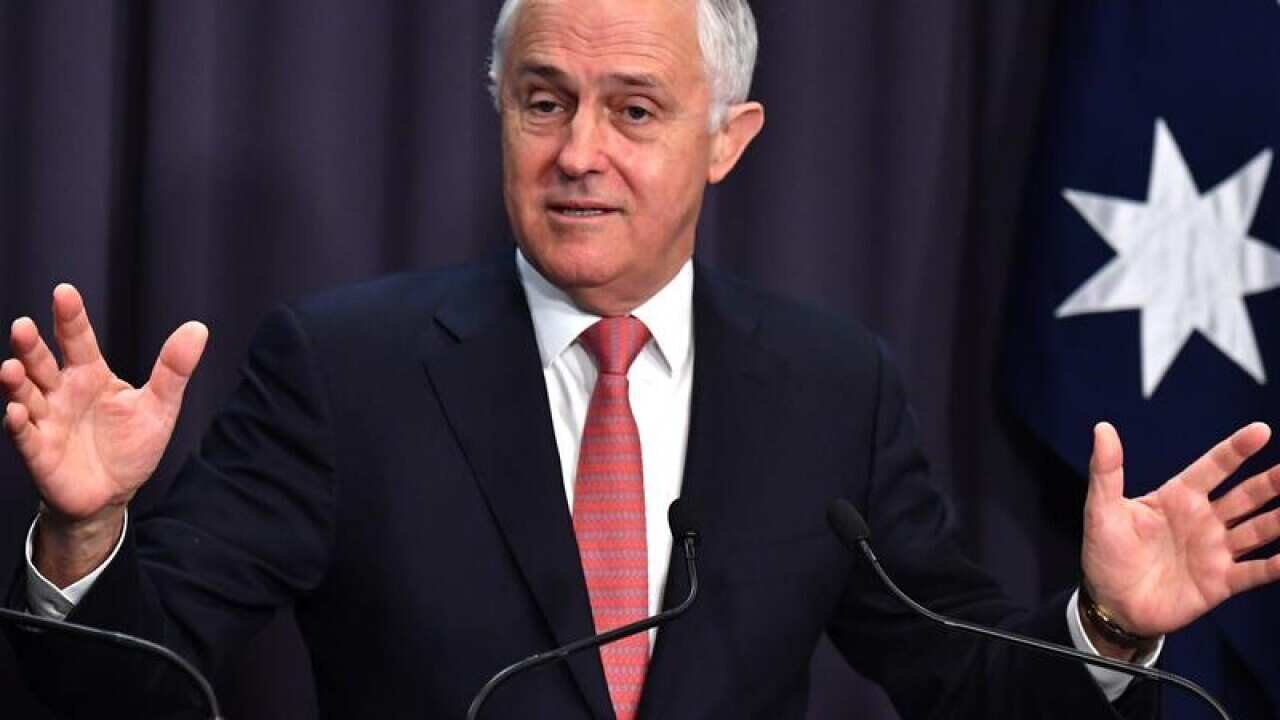Conservative religious organisations and politicians have played a the introduction of same-sex marriage in Australia and hope to do so again.
John Howard conservative religious views when he banned same-sex marriage. Labor’s fear of losing religious voters to the Liberals to the religious right, and saw it oppose same-sex marriage until 2011. Even then, Labor MPs opposed to same-sex marriage were granted an initial conscience vote that contributed to a parliamentary vote under the Gillard government.
Now, Malcolm Turnbull’s fear of alienating the has seen him agree to a plebiscite he .
Conservative religious organisations are mobilising again. However, given increasing public support for same-sex marriage, including among , they often argue that same-sex marriage is really about , such as gender roles and parenting.
A key argument – – is that same-sex marriage will threaten “religious freedom”. Such arguments, often based on a small number of yet-to-be-finalised , or a Tasmanian complaint that was , effectively reframe the debate away from discrimination against those in same-sex relationships.
Consequently, conservative Christians now depict themselves as potential victims of discrimination. This is despite the long history of past discrimination against gays and lesbians, including of male homosexuality and the of same-sex couples for many federal government entitlements. Such reframings have proved an effective political tactic .
In Australia, Abbott and Howard helped win the by arguing it was supporters of a republic who were the elite, while supporters of an inherited, feudally derived monarchy were the champions of ordinary Australians. Abbott has against politically correct elites for the marriage debate.
Furthermore, Turnbull, a leader of the republic movement in 1999, may have been outmanoeuvred again. The contentious method designed for choosing a president helped lose the republic referendum. Now, the failure to have a definite same-sex marriage bill in place makes it easy to run scare campaigns on issues such as religious freedom.
In a voluntary vote, scare campaigns can generate sufficient uncertainty to discourage initial “Yes” supporters from voting.
A striking feature of the debate has been the sudden enthusiasm for protecting religious freedom among those who were, until recently, committed opponents.
For years, conservative Christians campaigned against laws to protect religious freedom – because that would mean freedom for everyone. Time and again, to conservative Christians was “freedom to assert the superiority of their [own] belief system and the inferiority of others”.
In 1984, a landmark New South Wales Anti-Discrimination Board recommended extensive protections for belief and practice. Exemplifying conservative Christian opposition, the Synod Standing Committee of the Anglican Diocese of Sydney “deeply disturbed” by the report’s “serious bias against mainstream Christian churches”.
In 1988, the federal government proposed widening religious freedom protections to apply to the states and territories. The Central Commission of the Australian Catholic Bishops’ Conference a US-style religion-state separation, threatening state aid to church schools. Some Anglican bishops foretold threats to religious instruction and prayer in public schools. Other Christian leaders of state-sanctioned stonings and female circumcision.
In 2005, the NSW Legislative Council debated the . The Christian Democrats thanked “thousands of Christians” for helping secure the bill’s defeat. The Sydney Diocese of the Anglican Church .
In 2009, the federal government considered legislating a Charter of Rights. , chaired by Jesuit priest Frank Brennan, recommended in favour, including “freedom from coercion or restraint in relation to religion and belief”. The Australian Christian Lobby , supported by various church and Christian interest groups.
And now, in the marriage equality debate, those who fought against religious freedom protection are suddenly all for it. The Australian Christian Lobby, the Australian Catholic Bishops Conference and the Anglican Diocese of Sydney would rather have no same-sex marriage. But, if it must be, they want freedom for conservative Christian bakers to discriminate against gay wedding parties; freedom for conservative Christian florists to decline “hers and hers” bouquet orders; and so on.
But why stop there? Could bakers and florists cite biblical injunctions to deny wedding services, for example, to heterosexual divorcees or or ?
On August 14, Sydney’s Catholic archbishop, Anthony Fisher, , if same-sex marriage is introduced:
What protections will be offered to people who work for church-run institutions such as schools, hospitals and universities?
But he only meant some kinds of protection:
Will teachers be free to teach church teaching on marriage or will they be forced to teach a more politically correct curriculum?
We were recently reminded sharply how strong already are, given from anti-discrimination law. Fisher’s Melbourne counterpart, Denis Hart, the church’s 180,000 employees against “any words or actions” – such as a gay wedding – that failed to “totally” uphold a “Catholic view of marriage”.
Religious organisations will remain free to refuse same-sex marriage if it is eventually introduced. Meanwhile, another group’s religious freedom seldom gets a mention. of Australian same-sex couples identify as Christian.
However, unlike in that do not have government laws impinging on religious freedom by banning same-sex marriage, their marriages can currently not be religiously solemnised.
Clergy stand ready to officiate – “because of our faith, not in spite of our faith”, as some . Their religious freedom to their LGBT congregants is currently constrained. Not all Christian same-sex couples may want church weddings. The point about true freedom is having the choice.
Not all Christian same-sex couples may want church weddings. The point about true freedom is having the choice.
, Professor of Politics, and , Professor, Department of Modern History, Politics and International Relations,



